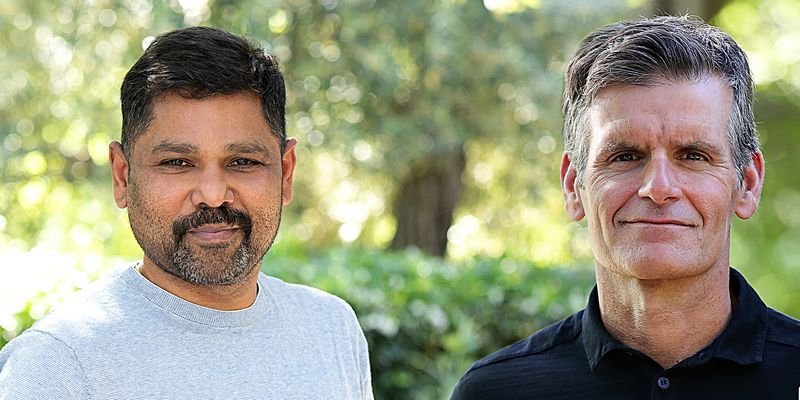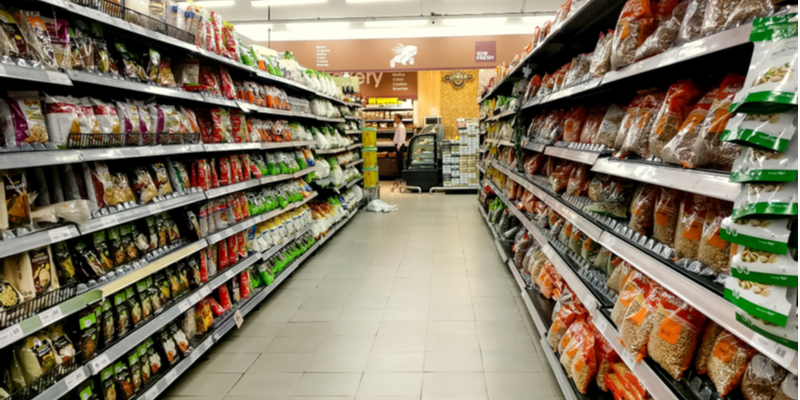Startup
Freshworks rolls out Freddy AI Agent to elevate customer and employee experience

SaaS giant has launched Freddy AI Agent, an easy-to-deploy autonomous service agent designed to enhance both customer experience (CX) and employee experience (EX).
The AI agents can be deployed within minutes and have autonomously resolved an average of 40% of customer support requests and 45% of IT service inquiries, said the company in a statement.
The introduction of Freddy AI Agent comes at a time when many enterprises are adopting AI agents to streamline their workflows. According to a report by Gartner, by 2028, 33% of enterprise software applications will incorporate agentic AI, enabling 15% of daily work decisions to be made autonomously.
“Fundamentally, customer service is all about creating delightful experiences for customers, such as engaging with them really well and making sure that their problems get resolved correctly as well as quickly,” Ramesh Parthasarathy, SVP of Technology, Freshworks told YourStory.
“Chatbots have historically been very programmatic and rule-based, requiring businesses to think about different possible directions in which the customer conversations will take place, in order for them to create those delightful experiences. Whereas, AI agents are autonomous flows, which can produce human-like conversations with very little setup or configuration. It doesn’t have to be as extensive as rule-based or intensive as that of chatbots, but can create much more delightful conversational experiences with far less configuration,” he added.
Several mid-sized companies, including Bchex, Porsche eBike, Hobbycraft, and Live Oak Bank, have already integrated Freddy AI Agent with Freshdesk and Freshservice.
“Freddy AI Agent is a game-changer for organisations looking to accelerate customer service and employee service, fast. Most other software requires multiple weeks and implementation fees to deploy an AI agent, but we’ve designed Freddy to be deployed without code or consultants in minutes,” said Dennis Woodside, CEO and President at Freshworks.
Organisations can deploy Freddy AI Agent without the need for coding or model training by simply directing it to existing materials or websites, allowing the agent to crawl and learn on its own.
“Almost all businesses have their standard operating procedures or product catalogues, which are either on the website or in the form of PDFs or documents. Our objective is to make sure that we can use this available content of knowledge and answer customer queries,” Parthasarathy added.
He added that AI agents are particularly effective for automating routine business inquiries and tasks, which include common customer service requests like checking business hours, account balances, order statuses, refunds, and cancellations. In IT, they can handle basic troubleshooting, such as password resets and connectivity issues.
Freddy AI Agents operate fully autonomously and are always active, providing human-like, multi-channel support, along with hyper-personalised and multilingual interaction. Additionally, it is built with strict privacy controls to meet enterprise-grade security and compliance standards.
“From advisor to active problem-solver, an orchestrated symphony of specialised agents can thoughtfully handle a large and growing percentage of daily requests and help employees do their jobs more effectively. Copilots also step in to assist the human agent, further automating tasks and workflows that run a business. Freshworks is researching and applying the best of both worlds where people and AI can work together,” said Murali Swaminathan, Chief Technology Officer at Freshworks.
Startup
Inflation continues to hit FMCG industry, urban growth expected to slow in H1/2025: Kantar report

Heading towards a slowdown amid inflationary pressures, the FMCG industry‘s volume growth during August-October this year has dropped to 4.3% from 6.4% in the year-ago period, research and insight firm Kantar said in a report.
Moreover, the FMCG volume growth was lower sequentially also as in the May-July period, this was 4.5%, according to Kantar’s latest FMCG Pulse report.
“We are in that last quarter, and the FMCG growth as of the quarter ending October is 4.3%. This number is a far cry from the 6.4% growth seen in Q/E Oct ’23, but is also a tad lower than 4.5% we saw in the last quarter, i.e. Q/E Jul ’24,” it said.
Volume growth in the urban market was at 4.5% in the August-October period, down from 6.9% in the same period of 2023.
However, the report added: “It is also true that a 4.5% growth following a near 7% growth in the previous term is extremely rare. In fact, over the last five years, this has only happened in the quarters of 2024.”
Therefore, technically urban is in a slowdown, though “it is far from a slump”.
About the inflation, the report said that per-household average quarterly spending crossed Rs 6,000 for the first time in the August-October period of 2022, and two years since then, spending has seen a 13% jump and is at Rs 6,761 during this quarter.
In May-July 2024, shoppers were paying Rs 133 per KG of FMCG on average. Just one quarter since then, shoppers are paying Rs 137 per KG, a jump of Rs 4 per KG in the latest August-October period.
“In recent years, this kind of growth in a single consecutive quarter was only seen during the initial months of the 2022 inflation period,” it said.
With no signs of food inflation relenting in the immediate future, where value growth rapidly draws away from volume growth for some more time, it’s hard to see urban (market) growing more rapidly than the current levels.
“We are expecting similar levels of growth to continue into the first half of the next year,” it said.
About the rural market, Kantar said it also seemed “underperforming” with just 4% growth, which is even slower than the 4.5% growth of the urban market in the August-October period.
However, it also added this was led by the mega category, wheat flour (atta).
“Non-atta rural FMCG growth is stable linearly and is growing seasonally,” it said.
Personal care categories have seen a strong jump from 2.8% to 5.4% in August-October, 2024, compared to a year ago. This is a good indicator of a positive market, and the extent of growth here gives us more confidence on the rural market, it added.
“Rural also has seen a near 11% CFPI (food price inflation), and this has resulted in a similar value growth differential here,” it said.
There are some concerns over rainfall for the rabi season, but a major stress is not expected, it said.
Startup
From IT engineer to health food innovator: Fit & Flex founder’s journey to building a sustainable brand

As India’s health food market continues to evolve, entrepreneurs face the dual challenge of creating nutritious and appealing products for the Indian palate. Understanding this delicate balance and the complexities of building a sustainable food brand in today’s competitive market requires more than just a good product; it demands mindful entrepreneurship. This was the focus of a recent webinar in the iStart Inspire series, where Parthik Patel, Founder of Fit & Flex, revealed how his journey from IT engineering to revolutionising the health food market exemplifies mindful entrepreneurship.
The webinar, presented by iStart Rajasthan—one of India’s largest startup initiatives—in partnership with YourStory, offered valuable insights into building a sustainable health food brand.
Finding the right market gap
Patel’s entrepreneurial journey began unconventionally in the cotton and chemical industries. His passion for fitness and healthy eating, combined with identifying a gap in the Indian market for better-tasting, nutritious cereals and snacks, led him to establish Fit & Flex in 2019.
“Indian consumers are ready to compromise on health, but they are not ready to compromise on taste,” Patel emphasised, highlighting the importance of understanding market dynamics.
The company faced significant hurdles early on, with COVID-19 hitting just months after launch. Despite having to shut down their factory for four months and managing a team of 60-70 people during the pandemic, Fit & Flex demonstrated remarkable resilience. It expanded to 12 cities and 22,000 stores within three months post-lockdown, showing impressive adaptability in crisis.
Innovation at the core
What sets Fit & Flex apart is its commitment to innovation. The company utilises proprietary baking technology that ensures products remain crunchy longer than conventional alternatives. “We are known for innovation,” said Patel, mentioning unique variants like mango and coconut flavours not commonly found in the Indian market.
Despite facing pressure to reduce costs, Patel maintained his commitment to quality ingredients. He shared how the company continues to use premium components like freeze-dried fruits, which cost ten times more than conventional alternatives, to maintain product integrity. This dedication to quality has helped build a loyal customer base, with retention rates of 33% in general trade and modern trade channels.
Appearing on Shark Tank India proved transformative for the brand, resulting in an 11x increase in sales for several weeks. “Being on national television is massive,” said Patel, explaining how the exposure helped increase brand visibility not just in India but internationally.
Keys to success for aspiring entrepreneurs
During the Q&A session, Patel offered valuable advice for aspiring entrepreneurs in the health food space. He emphasised three critical factors: product-market fit, pricing strategy, and patience. “You need to have uniqueness in your product,” he advised, stressing that entrepreneurs should focus on the basics rather than trying to do everything at once. He cautioned against the common mindset of expecting quick success, noting that “branding takes 10-15 years”.
For customer retention, he recommended a multi-channel approach combining WhatsApp marketing, email campaigns, and telemarketing, achieving a 22% retention rate online and 33% in offline channels.
Looking ahead, Patel sees enormous potential in India’s packaged food industry, particularly with the increasing workforce participation of women. Fit & Flex continues to innovate, recently launching ready-to-eat oats and protein puffs, while maintaining monthly growth rates of 20-30%.
This webinar was part of iStart Rajasthan’s comprehensive startup support programme, which has registered over 5,100 startups, including more than 1,700 women-led ventures, and sanctioned over Rs 35 crore in investments since its launch in 2017. Through initiatives like these, iStart continues to provide valuable mentorship, access to market and procurement opportunities up to Rs 25 lakhs to entrepreneurs across India.
Startup
Workplace solutions provider IndiQube files DRHP, eyes Rs 850 Cr IPO

Workplace solutions company IndiQube has filed its draft red herring prospectus (DRHP) with markets regulator SEBI to raise funds through an initial public offering (IPO).
The company’s IPO consists of a fresh issue of equity shares of up to Rs 750 crore and an offer for sale of equity shares of up to Rs 100 crore by the promoter-selling shareholders, Rishi Das and Meghna Agarwal.
IndiQube intends to use Rs 462.6 crore of the raised proceeds towards funding capital expenditures related to establishing new centres and Rs 100 crore towards the repayment of certain borrowings availed by the company.
Founded in 2015, the company currently manages around 103 centres across 13 cities and has a clientele roster ranging from Indian corporates as well as startups such as NoBroker, Redbus, upGrad.
The company reported a total income of Rs 867.6 crore in FY24 compared to Rs 601.2 crore in FY23.
Interestingly, for the three months ended June 30, 2024, the company derived 91.59% of its revenue from operations from centers in Bengaluru, Pune, and Chennai collectively. This trend was observed in FY24, FY23, and FY22.
IndiQube has become the latest company to file for an IPO after several startups such as EV-maker Ola Electric and food delivery platform Swiggy went public in 2024. Several companies including Ather Energy and omnichannel jewellery brand Bluestone has also filed draft papers to go public.
The company’s DRHP also comes at a time when flexible workspaces are becoming a rising trend in the commercial office market as hybrid working models become more common.
The Book Running Lead Managers to the offer are ICICI Securities Limited and JM Financial Limited and the equity shares are proposed to be listed on BSE and NSE.
-

 Startup Stories1 year ago
Startup Stories1 year agoWhy Millennials, GenZs Are Riding The Investment Tech Wave In India
-

 Startup Stories1 year ago
Startup Stories1 year agoStartups That Caught Our Eyes In September 2023
-

 Startup Stories1 year ago
Startup Stories1 year agoHow Raaho Is Using Tech To Transform India’s Fragmented Commercial Trucking
-

 Startup Stories1 year ago
Startup Stories1 year agoMeet The 10 Indian Startup Gems In The Indian Jewellery Industry’s Crown
-

 Crptocurrency10 months ago
Crptocurrency10 months agoLither is Making Crypto Safe, Fun, and Profitable for Everyone!
-

 Startup Stories1 year ago
Startup Stories1 year agoWOW Skin Science’s Blueprint For Breaking Through In The $783 Bn BPC Segment
-

 Startup Stories1 year ago
Startup Stories1 year agoHow Volt Money Is Unlocking The Value Of Mutual Funds With Secured Lending
-

 E-commerce1 year ago
E-commerce1 year agoTop Online Couponing Trends To Watch Out For In 2016




